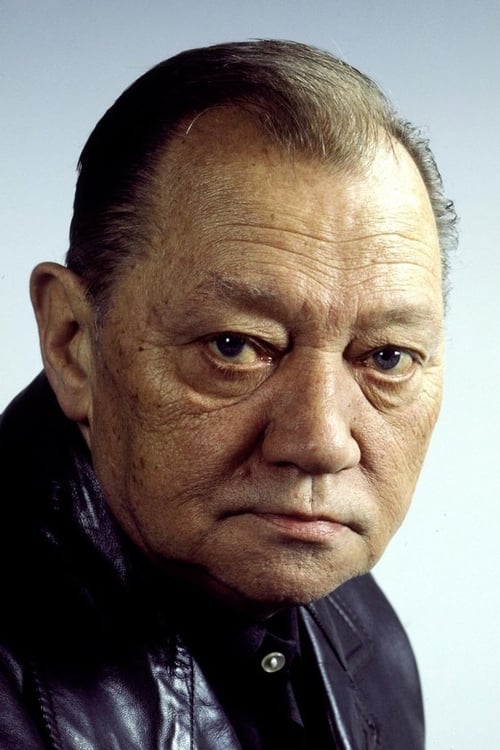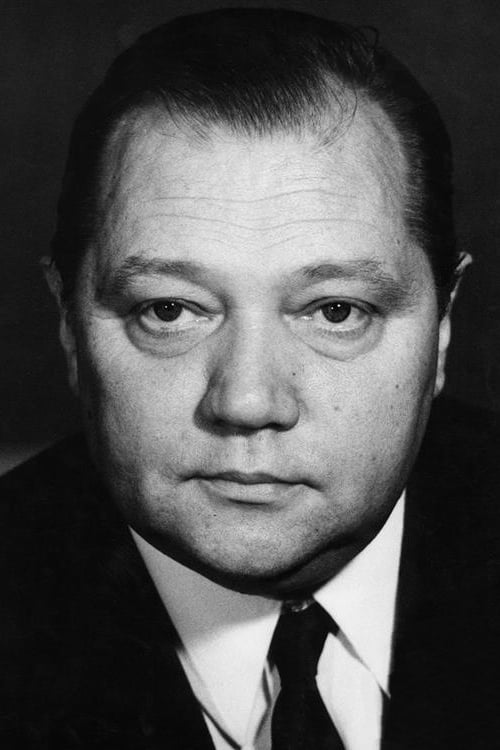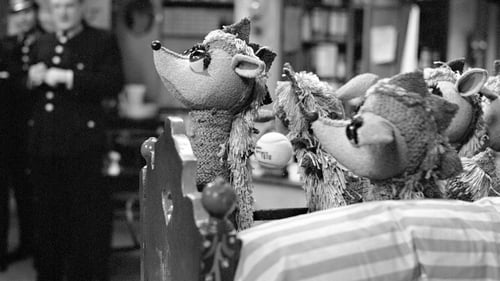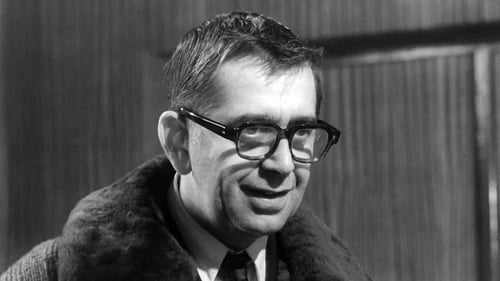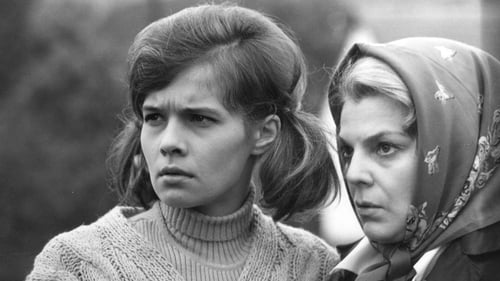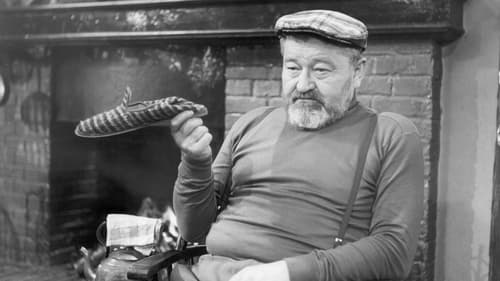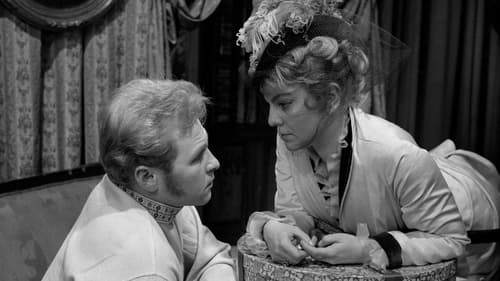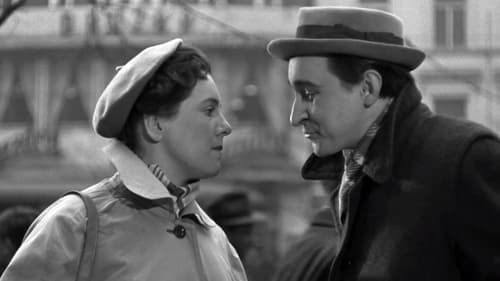
In the 18th Century, in Bohemia, a government surveyor meet a priest during a lunch and remained intrigued by him. Years later, in a stony valley, the two men meet again and form a deep friendship.

Lockit
Unlike any other opera, the so-called Beggar's Opera is not just one composition, but a lineage of adapted compositions, beginning with the original hugely successful 1728 political satire written by Englishman John Gay. Composers and writers have penned variations on it ever since. The most famous of these was A Threepenny Opera by Bertholt Brecht and Kurt Weill. Some things these compositions share in common is their setting among the poor and criminal classes, and the roguish character Macheath. This production is based on an adaptation of Gay's original by Vaclav Havel the freedom-fighter, writer and philosopher who became the first (and only) president of the united post-communist country of Czechoslovakia, and it retains many traces of its theatrical origins. Film reviewers were not too tolerant of what they called "slavish adherence" to the noted Czech writer's stage production, but theater, philosophy and history buffs may feel otherwise.

Policeman
Unlike any other opera, the so-called Beggar's Opera is not just one composition, but a lineage of adapted compositions, beginning with the original hugely successful 1728 political satire written by Englishman John Gay. Composers and writers have penned variations on it ever since. The most famous of these was A Threepenny Opera by Bertholt Brecht and Kurt Weill. Some things these compositions share in common is their setting among the poor and criminal classes, and the roguish character Macheath. This production is based on an adaptation of Gay's original by Vaclav Havel the freedom-fighter, writer and philosopher who became the first (and only) president of the united post-communist country of Czechoslovakia, and it retains many traces of its theatrical origins. Film reviewers were not too tolerant of what they called "slavish adherence" to the noted Czech writer's stage production, but theater, philosophy and history buffs may feel otherwise.
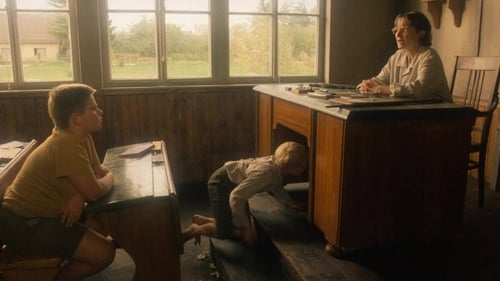
ředitel školy
The time is 1945-46. 10 year old Eda and his friend Tonda live in a small village outside Prague. In school, their class is so wild and indisciplined that their teacher quits and is replaced by the militant Igor Hnidzo. He is very strict - but also very just. His weakness is his interest in young women. Plot by Mattias Thuresson.

Grandfather
A young man has led his whole life with his grandfather. When he was in school, he was the only one who was refused to join the Youth Brigade, since his father was sentenced to death for spying. When it is time for him to do the compulsory military service, he has to do it in a platoon for "unreliable" persons.

Reviewers found this somewhat surreal film so visually stunning as to be worth watching even when it was not clear to them what was going on. In the story, Jozef Schrevek is a man with unusual powers which he wishes to pass on to his son before his death, which is coming soon. Unfortunately, his son is much more interested in boozing and womanizing and being a well-known habitué of nightclubs, than in taking his father seriously and receiving his powers and the responsibilities which come along with them. The tension between the two escalates when a young woman enters their lives.

opilec
A commemorative and essayistic meditative piece on the Prague quarter Libeň during the 1950s.

Trustee
In post-WWII Communist Czechoslovakia, several characters considered bourgeois are sentenced to work in a junkyard for rehabilitation. Among them is a young man who pines for a female convict.
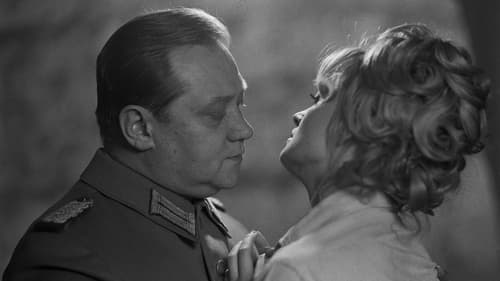
průvodce

Jakub Lhota
Czechoslovakia 1918. The newly formed National Assembly has made Stoklasa the administrator of the Kratochvile Castle. Although with no aristocratic background, he is a man of fortune and is trying to buy the castle. To impress his neighbors and the local politicians he invites them to a great hunting party. Uninvited comes a man who claims to be Duke Alexej. Stoklasa believes him to be a hustler. This hustler, however, manages to charm all the women before he leaves.

Hlavní ošetřovatel Masák

fotograf Antoch

Hubáček
Zatímco Kendy se jako pomocný režisér vrací do rodného města natáčet s televizním štábem třináctidílný seriál, Štěpán Šafránek, vybaven po promoci maminčinými radami, nastupuje na své první místo - na internu zdejší nemocnice. Jeho nepřizpůsobivost místním poměrům a smysl pro etiku zvoleného povolání však příliš nevyhovuje ostatním už zaběhnutým kolegům. Zatímco ti se škodolibě baví jeho horlivostí a zodpovědností, Štěpán má stále větší problémy s nadřízenými, až je nakonec přesunut na všemi odmítané místo venkovského obvodního lékaře. V Bezdíkově však potkává novou, snad už trvalou a opětovanou lásku, s níž se posléze rozhodne žít a pracovat v severních Čechách. (oficiální text distributora)

Poetry Reader (voice)
A narration of episodes from the life of the famous Czech poet, Karel Hynek Mácha. Throughout the film, we witness a deep analysis of Mácha's complex character (his relation to another Czech writer of the time Josef Kajetán Tyl, his unbearable jealousy, his solitude, his attitude to nature,etc.) on the well-depicted historical background with all its particularities.
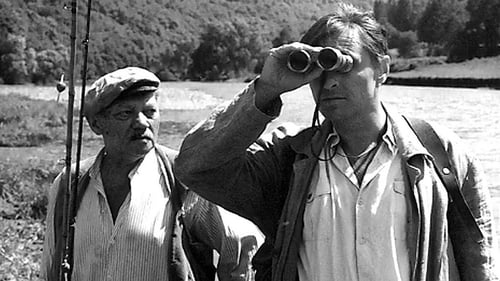
Prošek
Leo Popper is a happy family man living in rural Bohemia in the years preceding the Nazi invasion. Out of economic necessity he moves with his family to the big city and becomes an enterprising vacuum cleaner salesman. There he embarks on a series of adulterous adventures, has encounters with boxing pros and famous portrait artists, and schemes to purchase the perfect pond to fulfill his passion for fishing. When the Nazis gain control, the comedy turns sour - he loses his lake, his job, and finally, his family.

Děda
A tale about a young girl whose grandfather has built a garden of horrors.
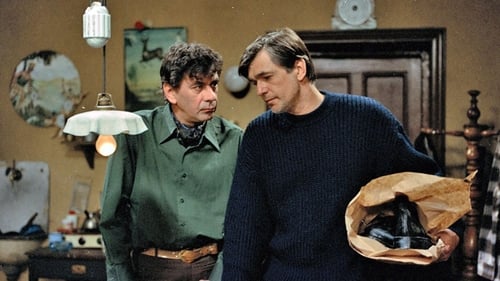
kriminalista Vašátko

Ladislav Valášek
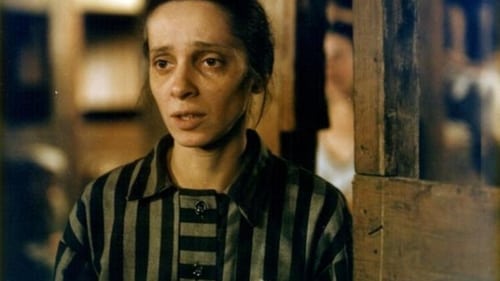
Dr. Pfitzner
A communist journalist from Prague is sent to Ravensbruck concentration camp.

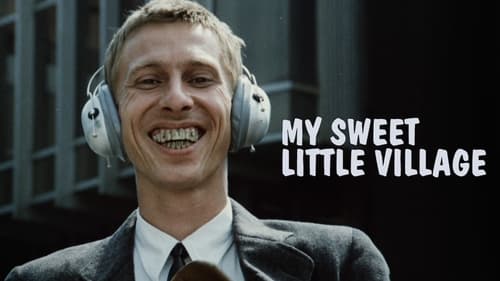
doktor
The movie's main storyline follows the life of Otík, a mentally retarded young man, in a tight-knit village community. The sweet-tempered Otík works as an assistant truck driver with Mr. Pávek, his older colleague and practical-minded neighbor. Pávek's family takes care of Otík, whose parents are dead. However, the two coworkers become at odds over Otík's inability to perform even the simplest tasks. Pávek demands that Otík be transferred to assist another driver, who happens to be a choleric and suspicious man named Turek (Turk in Czech). Rather than work with Turek, Otík decides to accept an offer of employment in Prague, but finds he does not fit in to the city life. After discovering that the transfer of Otík to Prague was a trick by a crooked politician to get a deal on Otík's large inherited house, Pávek agrees to give Otík a second chance and retrieves him from the city to resume their work together.

Edo
A story of a young student of medicine, who arrives in a small mountain village after being accused for carrying out illegal abortion. The film reflects the moral decline of the society, where stealing in secret and making compromises against one's beliefs make up mundane reality. The filmmakers went to perhaps the furthest possible limits in terms of allowed social criticism in the 1980s. The negative picture is enhanced by its rural setting, since the Slovak village had been traditionally associated with strict morals and conservative values.

Otec Hlaváček
A police inspector and inexperienced trainee search for a mysteriously disappeared manufacturer of ointments for hair growth.

Pankrác
It is a story of three veterans released from the army. During one night spent camping in the country they one by one wake up and meet three elvish brothers. Each of the veterans is given a magic item - one gets magic harp that provides him with servants by wish, other one endless pouch of gold and the last one owns magic hat that can create all the staff excluding money and people.
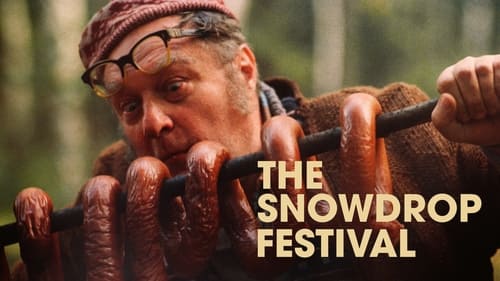
Jarin Franc
This movie is based on texts of Bohumil Hrabal, world-known Czech prosaic. It's a story (in a form of a mosaic of short episodes and pictures) about the sadness and happiness of inhabitants of Kersko (Kersko is a small woody area full of cottages and roods). These people are both simple and sensitive, they have their own pleasures (e.g. Leli is a collector of cheap, but inutile things) and the greatest delight of all of them is a hunting. Crude poetics of amateur hunting is screened by dreamy pictures of this area. Menzel mixes sentimental lyricism and rough (but not vulgar!) humor and the outcome is the never-ending landscape of continuous life in the proximate nearness of nature. The performances of actors are brilliant. Both Rudolf Hrusinsky as a Franz and Jaromír Hanzlik as a Leli have nonrecurring charm bottomed on a pain and inebriation. Only the music is not perfect: Jiri Sust usually assembled his film music from his older works and in this movie there is many quotations.

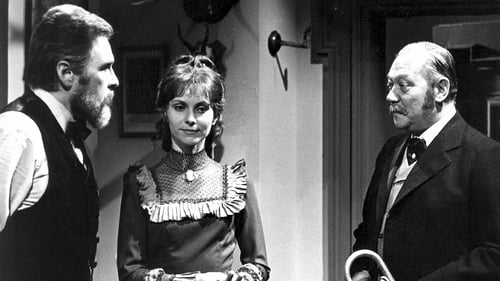
Humpl
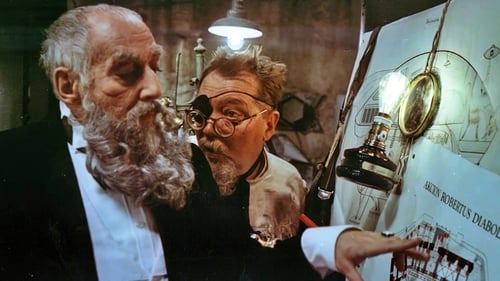
vynálezce Orfánik
In 1897, in a castle near the town of Werewolfville in the Carpithians, a slightly deranged Professor Orfanik experiments with his new inventions which include, even at this early date, television and a film camera. He is also an obsessed opera fan, keeps the body of his favorite diva preserved in a crypt in the castle. In order to keep away nosy visitors, the baron's mad-scientist assistant, invents all sorts of spooky phenomena in order to give the castle a creepy reputation.

The dreaded Italian mafioso, Marian Labuda, will also be convinced. Mafioso Carmello was guilty of the principles of his organization when he tried to fool the boss and earned a death sentence. The convict runs away from the killer through Vienna to Prague, which his Austrian colleague in crime recommended as a safe hiding place. None of them knows that the Czechs learned so much tricks under real socialism that a seasoned Italian professional is not enough to watch.

Carson
A remake of Vávra's 1948 atomic age thriller Krakatit.
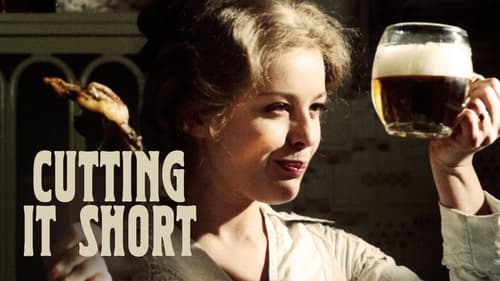
MUDr. Gruntorád, předseda správní rady pivovaru
Francin, manager of a small-town brewery, has a charming wife whose abundant blonde locks are an adornment to the town. Maryska looks ethereal but loves meat and beer, while Francin is an ascetic. The strict members of the brewery board of directors come to audit the accounts, but are diverted from concentrating on Francin's detailed reports by Maryska, who has organized a pig-killing feast and is ably assisting the butcher. When she invites the old curmudgeons on the board to enjoy the fresh pork, they are too happy to agree. Francin doesn't know whether he is going to get a permanent contract. To make things worse his brother Pepin - eccentric, noisy and garrulous - turns up on an indefinite visit.

Provazník

světoběžník Prepsl
A story about an everyday life of an inflectional department of Prague hospital.

Loupežník Bujón
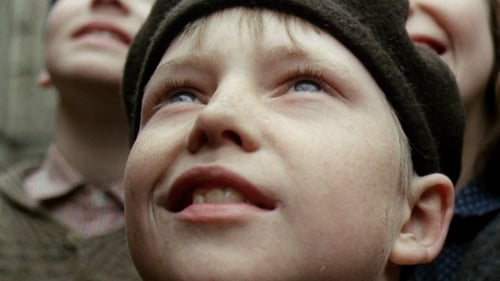
lékárník
Set in Prague during the years leading up to World War II, this family saga tells the story of a cobbler named Vincenc Bursik (Vladimir Mensik), who uproots his clan from the country to the city, only to suffer the loss of his wife and the failure of his shoe business within months. When his daughter moves away to go live with a wealthy businessman as his mistress, Vincenc is left to take care of his two sons, who spend their days in a secret garden vying for the affections of a teenage girl.
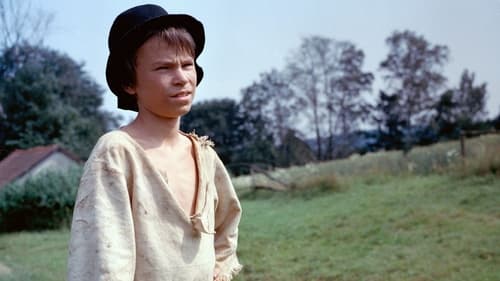
Buchar
How it will end? Let's just tell you that on one side of the mountain, the stream that had run before it dries up, and on the other side of the mountain, the creek starts to breathe.

Television play

Jan Zaremba

major Kalaš
Two seriously injured patients are brought to the hospital at almost the same time: truck driver Honza Linhart, who had an accident, and a young woman found unconscious in a forest by a man picking mushrooms. The woman is identified as Katerina Marková, the divorced mother of a young girl. Major Kalas (Rudolf Hrusínský) suspects that she is a victim of mugging since a bloodstained small ax has been found near the site of the crime and, according to witnesses, Ms Marková was missing her watch and a bracelet, from which a gemstone has also been discovered. Linhart has lost his only kidney in the accident; in order to live a normal life again, he will need a kidney transplant from the mugged woman if she dies.
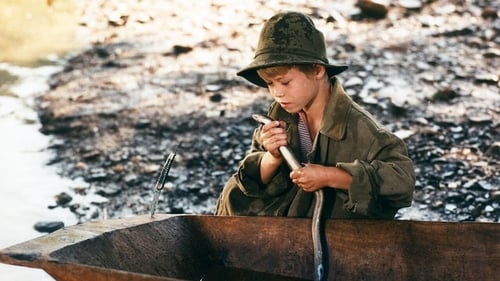
Prošek
A little boy, named Prdelka, traveled with his father from Prague to the country during the Second World War. There, the boy became friends with a local fisherman and learned to catch the golden eels. Eventually, his father and mother were arrested by the Nazis and the boy stayed with the fisherman.
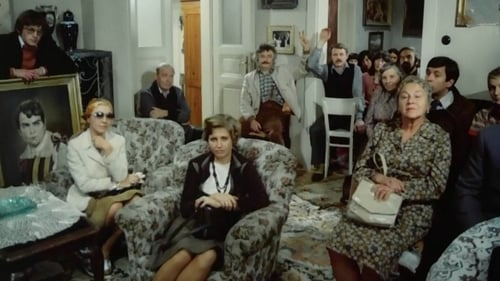
Dr. Radosta
A comedy about exchange of 12 apartments , which, its organizer, lawyer Radosta, rightly called Action Ball Lightning. To prepare, organize and execute the exchange of twelve apartments is a work worthy champions. Radosta, who was excellently played by Rudolf Hrušínský, solved all sudden difficulties and complications on the fly and with grace. To be sure that the on the D-day everything goes well he prepares a little rehearsal, which reveals many minor issues caused for example by wedding ordered to inappropriate term or hesitation of some participants. Last but not least a night exercise announced by drunk psychologist Knotků, creates a lot of confusion that nearly sabotaged the whole operation.
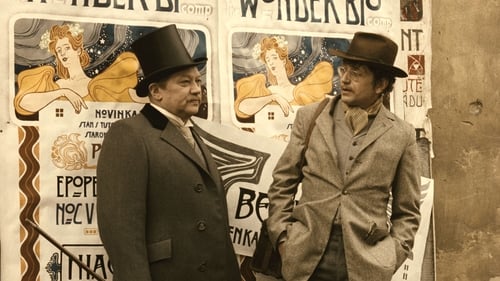
Returning home to Prague, the magician Pasparte, an owner of a circus caravan, meets his dying colleague who entrusts his beautiful daughter Aloisie to his care. In Prague they all take up their lodgings at the house At Blue Fish in which they intend to arrange the programs. The firm is owned by widow Evzenie with whom Pasparte shares flat and bed. Evzenie is jealous of Aloisie therefore Pasparte sends Aloisie as a housewife to the single man Jakub Kolenatý who earns his living by photographing and wants to record the revived pictures of Prague. Pasparte wants to found in Prague the first permanent Czech movie theatre in which there would be projected also the original Czech films.
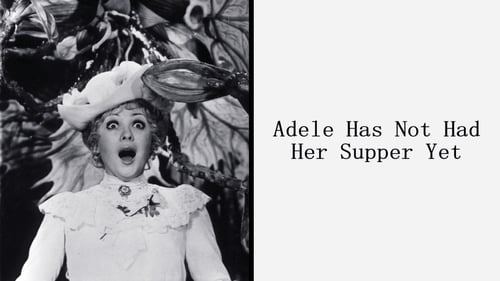
komisař Ledvina
When famous detective Nick Carter visits Prague, he becomes involved in strange case of a missing dog and even stranger carnivorous plant. He becomes convinced that he is standing against his greatest enemy, the Gardener, who supposedly died years ago in a swamp...
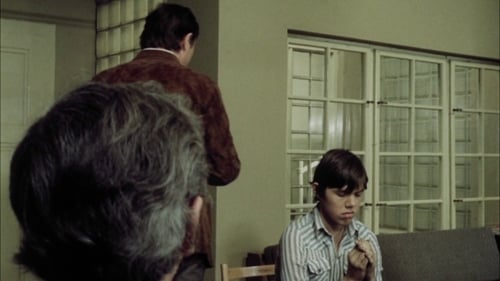
Weiss

This grotesque, micro-realistic film is set in a small village at the end of the seventies. A TV-staff comes to the Petőfi Memorial House. They want to record the comic opera, The Postman of Longjumeau, by Charles Adam, a 19th century French composer.

Commentary (voice)
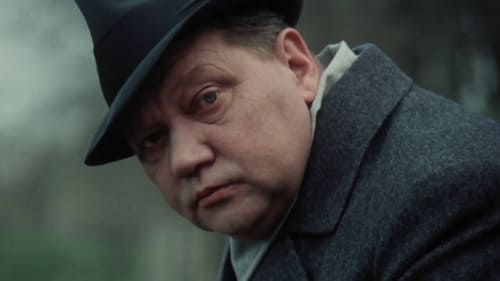
Dr. Meluzin
In this character study by Czech director Frantisek Vlacil, a stout middle-aged physician whose marriage has come apart establishes a practice in a small town. Gradually he's drawn into the lives of his patients—a childless couple, a pregnant girl with a stern mother, the son of a duck farmer—and each relationship reveals a bit more about him and the idyllic but insular community.

Narrator (voice) (uncredited)
A film story based on the old Prague legends. It tells about a poor student lured by wealth, which he prefers to knowledge. In the end, he sells his soul to the evil powers. The Devil takes him to hell and since then there is a blackened hole on the ceiling of a Prague house.

Narrator (voice)
Sally, a dressy little girl, receives a lesson from a sorcerer about lying and happiness.

Narrator (voice)

vypravěč

Kaprál 'baron'
The year is 1943. The war is raging between the Germans and the Allies in North Africa. A truck with a Czech crew, Lieutenant Navara and six soldiers, escapes from the Foreign Legion fortress. Their aim is to reach the Allies and fight against Nazism. The truck is destroyed by a German army plane, which is hit by enemy fire in its turn. One Czech soldier dies in the attack, the driver is badly wounded, and Navara has serious burns on his face. The group has very little water and must reach an oasis that is 60 km away.

Mike
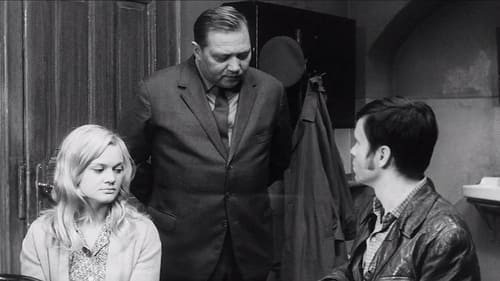
major VB Kalaš
Major Kalas from the Prague criminal intelligence service has been sent to a small town of Dubá in North Bohemia to help with the investigation of the puzzling death of a child. A gypsy boy has been killed three weeks ago and his body found under a rock. As the investigation continues, another dead boy is found. The boy has bled to death after someone cut his artery with a handsaw. Both deaths are obviously the work of a murderer - a perverted pedophile, sadist who gets sexual satisfaction from the sight of a young boy's blood.
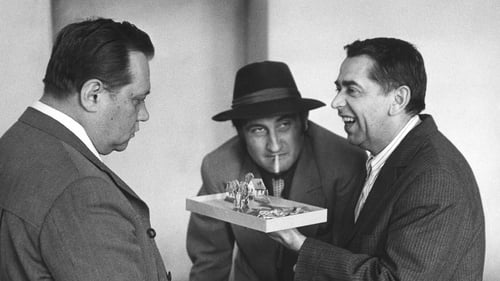
Hanousek

herec Kraus

Karel Kopfrkingl
Mr. Kopfrkingl enjoys his job at a crematorium in Czechoslovakia in the late 1930s. He likes reading the Tibetan book of the dead and espouses the view that cremation relieves earthly suffering and sets out to save the world. There may be another idealogy that fits snugly with his existing worldview.

This historical film by Hynek Bočan touches upon the indecisiveness of the Czech nation, ready to bend the backbone in face of foreign rule. Situating the story at the close of the Thirty Year War enabled the depiction of the misery of the people that affects even an impoverished aristocratic milieu. Rudolf Hrušínský appears here in the role of an indecisive knight, persuaded for a long time and in vain to join the anti-Habsburg movement. The story does not only captivate through the depiction of manifold human characters, intrigues and sycophancy, but also through the circumstances ruling over the devastated farmstead, sunk in mud and crudeness. One of the best films with an updating tendency has come into being here, rightly being named along the such greats as Kladivo na čarodějnice (Witches' Hammer).

Knéz
A black comedy set in a Prague cabaret.

Unden
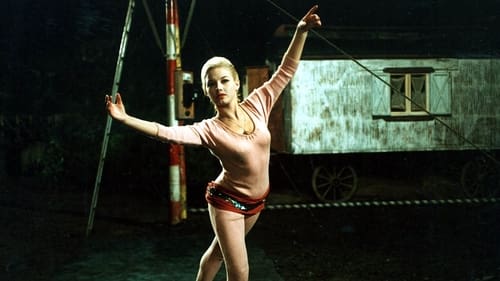
Antonín Důra
Middle-aged Antonin and his friends, the major, now retired, and the canon, are in the river, swimming and philosophizing. Then it starts to rain. It just seems to be that sort of summer. Antonin runs the swimming bath with his portly wife Katherine... A man appears with his horse-drawn caravan. He lays a striped pole across the river and walks over. With a handstand and a magic trick, Ernie the Conjuror invites everyone to that evening's performance... Ernie is a tightrope walker of only modest skill, but with a slim and beautiful assistant, Anna. Antonin speaks to her. The two spend the night in the change room by the river, Antonin massaging her feet all night long. Katherine decides to move into the caravan with Ernie. But now the major and even the canon sense Anna's attractiveness...

Šafránek
The exemplary accountant Antonín Safránek lives his orderly life as a citizen of a small town. His wife Eliska brings up their three children and desperately tries to get by on her husband's low salary every month. At the same time, she sadly watches the luxurious life of their neighbor and other people like him who have no qualms about improving their standard of living by cheating. One day, the infallible Safránek makes a mistake in the cash clearance and there are nine one-hundred Crown bills left in the safe. An unexpected company control carried out the next day passes without problems and the account is closed. The temptation is too strong. The insufficient control enables Safránek to gradually steal one million Crowns.


František Pokorný
The protagonist (Rudolf Hrusinsky) is a dull, fat, shy government clerk indulging in voyuerism and ego fantasies. In love with another clerk (Kveta Fiolova), he is urged on in his pursuit by a commiserate executive. The story is told in a flashback sequence as the cuckolded Hrusinsky attempts suicide by gassing himself in his bathtub. The "Murder" of the title is not a murder as such, rather the murder that Hrusinsky remembers planning upon discovering his wife's unfaithfulness with his supposed friend and advisor. Both plots failing in his mind, he loses himself in fantastic reveries of his funeral and of hypocritical mourners. ' Deciding (perhaps) that this is not the way out either, he gives up the attempt and imagines a life of reconciliation and eventual affluence.
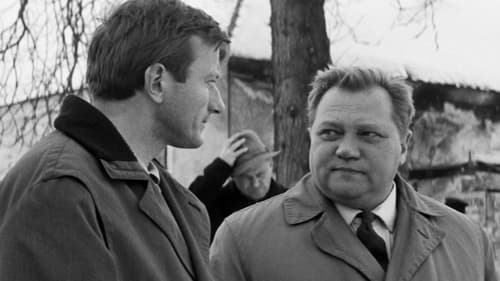
major SNB Kalaš
In the forest near the village of Drahovice, a nurse from the local health center is found murdered. Three months ago, another young woman died nearby and a sexual motive was proved in the case of her murder. In the case of the nurse, the motives are not so clear. Two criminologists from Prague - Major Kalas (Rudolf Hrusínský) and Lieutenant Varga (Radoslav Brzobohatý) - patiently collect all available leads and question the villagers.

úředník investičního odboru Honza Vavřinec
Honza Vavrinec (Rudolf Hrusínský) works in the investment department of a large office. One day he gets involved in the case of an unjustly convicted worker who mistakenly considers him a parliamentary deputy. Honza as a "deputy" interferes in the case and helps the worker. Encouraged by the success and possibly also out of love for the beautiful secretary Svatava (Blanka Bohdanová), the then shy and fearful Honza stands up for the chief of the department, Hofmánek (Ladislav Pesek), who has been removed from his position.

Balabán

Mr. Kurka
A woman attempts to cover up the thefts committed by the manager at the shop she works at.
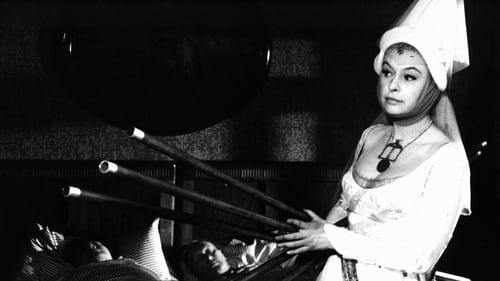
předseda MNV František
This castle has its own ghost - a mysterious White lady. She emerges from the painting on the wall when someone speaks out magic formula. White lady is good ghost, she can make someone's wishes true. Even if it is a new duct. But a miracle is not the thing that Communist leaders want in the town.

Cyril

Karl Glaser

Conductor
The Prague Grand Orchestra travels by train to a music festival in Yugoslavia. Only the singer Sona Klánová missed the departure. In the meantime, she managed to buy a ticket to Belgrade at the air-terminal from Mrs Navrátilová, who couldn't make the trip. In the meantime, the orchestra conductor is beside himself with despair. He phoned to Prague from the border, and when he realized that Sona had left her house in a taxi, he thought that she would catch up with them by the road. The orchestra delayed the train's departure with an improvised concert for the custom officers and the passengers.

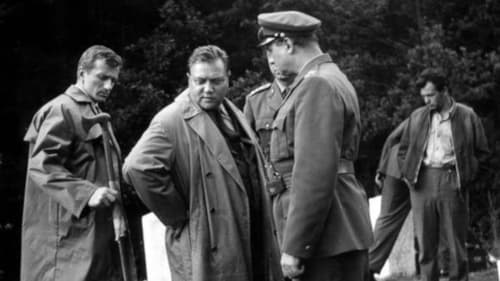
major SNB Kalaš
A car deliberately runs down a young man on a road by a small border town. The locals recognize the dead man as one of the students who were there on volunteer work some time before. The police detectives, Major Kalas (Rudolf Hrusínský) and Lieutenant Varga (Radoslav Brzobohatý) can then get on the trail of the people with whom the victim was involved, especially at the photographic studio headed by Bohuslav Pacer (Bohus Záhorský).

Lucin
A group of outcasts, including a vagabond and a prostitute, gather at the outskirts of the industrial area of a large Czech city, one of the things that helps some of them survive is alcohol.

Straslipka
About the great Czech satirist Jaroslav Hašek, who was captured by the Russians during the First World War. Not wanting to fight for the interests of the Austro-Hungarian monarchy, Hašek enters the Red Army and, as a commissar of the international brigade, goes the military way from Samara to Irkutsk.

tatínek
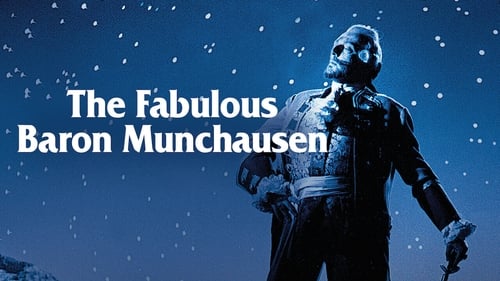
sultán
The 20th century's first man lands on the moon and discovers - that Baron Munchausen has already beaten him to it, along with Cyrano and characters from Jules Verne's lunar-landing novel. The Baron spirits the young cosmonaut by horse-drawn ship back to an ancient "Earth", where they insult a sultan, rescue a princess, fall in love with the princess, and then as a trio have further experiences in a world of pastel colors, ornate dreamlike settings, and the inevitable angry disrupters of peacefulness and love.

Police Commissioner Appawou

Böhm

farář z Capartic

When a man stops at a motel one evening in 1961, his tormenting behavior drives one of the people present at the motel to remember his experiences in a concentration camp during WWII.

Bures

Fiala

kolaborant Zajíček
During the Nazi occupation of a Czech city civilians are being rounded up on the slightest of pretexts and shot. One day three high school boys who crack jokes about a recently deceased "hero of the Reich" are pulled out of school by the Gestapo.
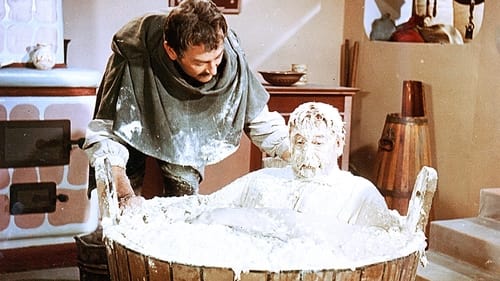
Pandrhola, sládek

Dr. Wagner
Kam Cert Nemuze by director Zdenek Podskalsky is a routine farce that slowly builds up steam to some rib-tickling slapstick episodes. (Miroslav Hornicek) is a deluded young man who is convinced he is Faust incarnate. This turn of mind leads to some ludicrous situations, such as when he believes a woman is really a cat. Before he can be rounded up and interned wherever they keep people with this type of a problem, love enters his life and the clouds that obscured his vision begin to dissipate.

Pipka

Kaláb
In southern Moravia, in the native village of Velka Samota, a ministry official returns from Prague to lift the declining JZD he helped establish.

captain Smok
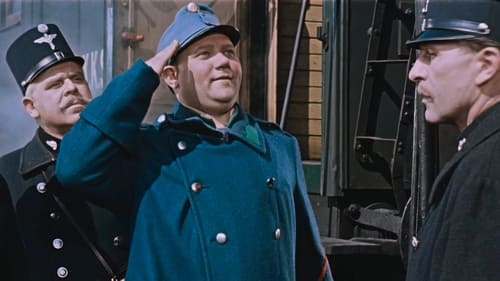
Josef Švejk
A comedy based on the novel of Jaroslav Hašek's The Good Soldier Svejk happens during the World War I. I Dutifully Report: In the introduction to the second part of the film adaptation of Hašek's novel The Good Soldier Švějk presents his main character Josef Švejk. With the distinctive traditional Czech cartoon character of a soldier Svejk, this time you meet on the way to the front and eventually right in the firing line. You can look at his famous train events, and also probably the most famous episode of the novel, Švejk's Budějovice anabasis. Don't miss the scene with the secretly bought cognac, the episode with Svejk as a fake Russian prisoner of war, including the court scene, and the scene in which lieutenant Dub is caught in a brothel. Despite the criticism, Steklý's adaptation is undoubtedly the most famous and memorable at present.
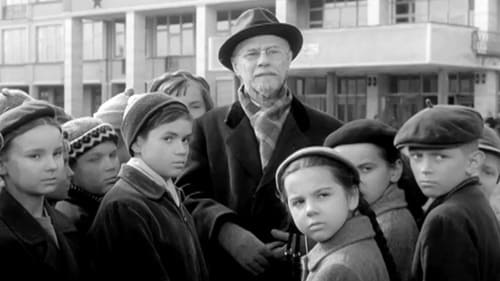
Mlcoch
A new teacher with high standards and a strong sense of duty replaces an easy grader. Once bad grades begin to pile up, a product of his predecessor's subservience to the system, the new teacher has to stand up for himself and his students.

Josef Švejk
Good-natured and garrulous, Švejk becomes the Austrian army's most loyal Czech soldier when he is called up on the outbreak of World War I -- although his bumbling attempts to get to the front serve only to prevent him from reaching it. Playing cards and getting drunk, he uses all his cunning and genial subterfuge to deal with the police, clergy, and officers who chivy him toward battle.

Burgrave's Son
The second part of the revolutionary Hussite trilogy takes place in the years 1419-1420.

locksmith Alois Pohanka

Plánka

purkmistrův syn
Jan Hus is a 1954 Czechoslovak film directed by Otakar Vávra. It is the first part of the "Hussite Revolutionary Trilogy", one of the most famous works of the Czechoslovak director, completed with Jan Žižka (1955) and Proti všem (Against All Odds, 1957).
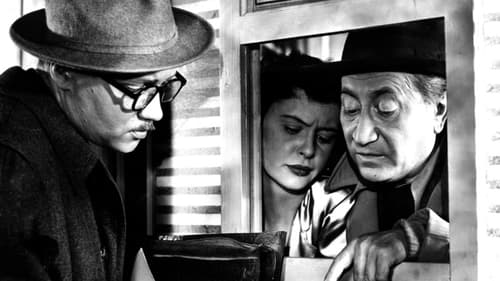
A few bus-loads of holidaymakers from the agricultural cooperative on a day trip arrive to see the show at the Slavia Circus. But, they have bad luck. It is Monday, the day on which the employees have their extra day off.

Sram
The happenings in a shoe factory serve as a not very thinly veiled examination of the pros and cons of both socialism and democracy.

divers Ladislav, Junkův syn
Director: Vaclav Gajer

Havránek
Komedianti is a 1954 Czech film directed by Vladimír Vlcek. It was entered into the 1954 Cannes Film Festival.

Self

Kurzweil

mechanic Karel Král, wrecker
Based on a true story

Syrovátko

Odon, nejstarší syn Tříškových
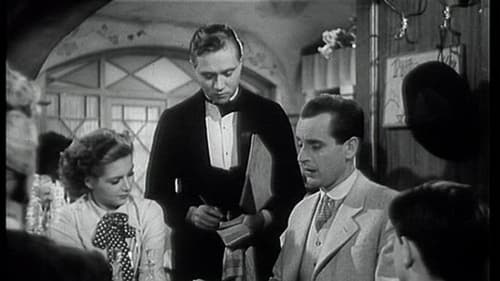
Spytihněv

Josef Pavlas
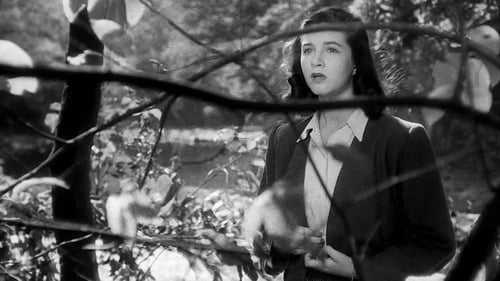
A daughter of a celebrity family experiences a holiday adventure with a mysterious young man. Though she is strongly attracted to him, she is also concerned about his sinister, panicky speech, his fierce charisma.

Master armourer Tomás has young wife Alena, of whom he is very jealous. One day the ruler of town sees Alena and decides to win her over for himself. To get a free hand for his love affairs, he sends Master Tomás to acquire more skills in Flanders. Jealous husband does not know how to secure fidelity of his beautiful wife while he is away, and finally accepts aid of the devil, to whom he signs his soul as a reward. Devil in the disguise of Master Ondrej works in Tomás's workshop and protects Alena against various courtiers and the ruler of town. But finally he falls in love with Alena himself and becomes her lover.

Screenplay

Story

Director

Pancho

Director

Richard

Vojta
Mist on the Moors examines fates of just about a few people. Their stories are outlined in a short space of time and are a symbolic representation of the drama of life, struggle for justice, human cognizance and the healing power of love. One of the most important components of the film is the nature, which ceases to be a mere stage for its plot—it serves almost as an autonomous plot agent. The movie landscape is a precisely defined and localized one. Only the South Bohemian ponds can serve as the right environment for development of such earthy and typically human stories as we encounter in the Mist on the Moors.

Bořík, syn Hlavsových

A writer of pulp crime novels is drawn into a series of real crimes. This film was one of the first Czech attempts on a genre parody.

Bohumil

Michal Lary
Venice Film Festival 1941

Jindra Coufal

Antonín Vobořil

Karel Toman

Jarka Kohout

septimán Jan Vaněk
Small stories from a grammar school.Děj je poskládán z celé řady epizod, které během jednoho školního roku prožívají septimáni. Jejich pojítkem je příběh profesora přírodopisu Matulky, starého mládence a věčného suplenta, který si z přehnané svědomitosti ani v pokročilém věku netroufá složit tu poslední státnici. Stále se mu totiž zdá, že ještě něco nezná, a tak by snad bez diplomu odešel i do penze. Naštěstí jsou tu jeho studenti, kteří sice dávají dobráckému učiteli pěkně zabrat, ale po nezodpovědné klukovině s bouchacími kuličkami, kdy se Matulkovi udělá špatně, se kluci vzpamatují a s pomocí mladého profesora, někdejšího Matulkova žáka, připraví šlechetnou lest. Pod záminkou nákupu k doplnění školní entymologické sbírky je vylákán ke zkoušce u laskavého profesora Vondráka. (oficiální text distributora)

Josef Hupka
Venice Film Festival 1939

Jarka

Jarka, syn Rejlkových
